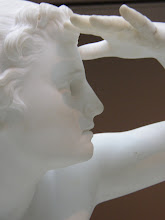Obama and Huckabee win.
Democrat Barack Obama and Republican Mike Huckabee won their respective Iowa Caucuses last night with margins that are bad news for Mitt Romney, Hillary Clinton and John Edwards but possibly good news for John McCain.
In the final results, Mr. Obama was favored by 38% of Iowans who turned out at Democratic caucuses around the state, followed by Mr. Edwards, with 30%, and Ms. Clinton, 29%. Of the second-tier Democratic candidates, only Bill Richardson garnered as much as 2%, and Sens. Joe Biden and Chris Dodd bowed out of the race without immediately endorsing any of their rivals. Among Republicans, with 96% of precincts reporting, Mr. Huckabee won 34%, Mr. Romney 25%, Fred Thompson 13% and Mr. McCain 13%. Ron Paul won 10%, and Rudy Giuliani, who hadn't actively campaigned in Iowa, won 3%
he Iowa caucus is an electoral event in which residents of the U.S. state of Iowa elect delegates to the county convention to which their precinct belongs in a caucus. There are 99 counties in Iowa and thus 99 conventions. These county conventions then select delegates for both Iowa's Congressional District Convention and the State Convention, which eventually choose the delegates for the presidential nominating conventions (the national conventions).
The Iowa caucus is noteworthy for the amount of media attention it receives during U.S. presidential election years: Since 1972, the Iowa caucus has been the first major electoral event of the nominating process for President of the United States. Although only about one percent of the nation's delegates are chosen by the Iowa state convention, the initial caucus has served as an early indication of which candidates for President might win the nomination of their political party at that party's national convention.
The 2008 Iowa caucus took place January 3.
IOWA CAUCUS Past winners
Democrats
* January 3, 2008 - Barack Obama (38%), John Edwards (30%), Hillary Clinton (29%), Bill Richardson (2%), Joe Biden (1%), Chris Dodd 0%, and Dennis Kucinich 0%
* January 19, 2004 - John Kerry (38%), John Edwards (32%), Howard Dean (18%), Dick Gephardt (11%), and Dennis Kucinich (1%)
* January 24, 2000 - Al Gore (63%) and Bill Bradley (37%)
* February 12, 1996 - Bill Clinton (unopposed)
* February 10, 1992 - Tom Harkin (76%), "Uncommitted" (12%), Paul Tsongas (4%), Bill Clinton (3%), Bob Kerrey (2%), and Jerry Brown (2%)
* February 8, 1988 - Dick Gephardt (31%), Paul Simon (27%), Michael Dukakis (22%), and Bruce Babbitt (6%)
* February 20, 1984 - Walter Mondale (49%), Gary Hart (17%), George McGovern (10%), Alan Cranston (7%), John Glenn (4%), Reubin Askew (3%), and Jesse Jackson (2%)
* January 21, 1980 - Jimmy Carter (59%) and Ted Kennedy (31%)
* January 19, 1976 - "Uncommitted" (37%), Jimmy Carter (28%) Birch Bayh (13%), Fred R. Harris (10%), Morris Udall (6%), Sargent Shriver (3%), and Henry M. Jackson (1%)
* January 24, 1972 - "Uncommitted" (36%), Edmund Muskie (36%), George McGovern (23%), Hubert Humphrey (2%), Eugene McCarthy (1%), Shirley Chisholm (1%), and Henry M. Jackson (1%)[9]
Republicans
* 2008- Mike Huckabee (34%), Mitt Romney (25%), Fred Thompson (13%), John McCain (13%), Ron Paul (10%), Rudy Giuliani (4%), and Duncan Hunter (1%) *95% of precincts reporting [1]
* 2004- George W. Bush (unopposed)
* 2000- George W. Bush (41%), Steve Forbes (30%), Alan Keyes (14%), Gary Bauer (9%), John McCain (5%), and Orrin Hatch (1%)
* 1996- Bob Dole (26%), Pat Buchanan (23%), Lamar Alexander (18%), Steve Forbes (10%), Phil Gramm (9%), Alan Keyes (7%), Richard Lugar (4%), and Morry Taylor (1%)
* 1992- George H. W. Bush (unopposed)
* 1988- Bob Dole (37%), Pat Robertson (25%), George H. W. Bush (19%), Jack Kemp (11%), and Pete DuPont (7%)
* 1984- Ronald Reagan (unopposed)
* 1980- George H. W. Bush (32%), Ronald Reagan (30%), Howard Baker (15%), John Connally (9%), Phil Crane (7%), John B. Anderson (4%), and Bob Dole (2%)
* 1976- Gerald Ford and Ronald Reagan
Controversy
There is a debate over the effectiveness and usefulness of caucuses in Iowa. One criticism is that the caucuses, especially the Democratic caucus, are a step backwards from the right to a secret ballot. Democratic caucus participants (though not Republicans, whose caucuses vote by secret ballot) must publicly state their opinion and vote, leading to natural problems such as peer pressure from fellow neighbors and embarrassment over who his/her real pick might be. Another criticism involves the sheer amount of participants' time these events consume. The Iowa caucus lasts two hours, preventing people who must work, who are sick, or must take care of their children from casting their vote. Absentee voting is also barred, so soldiers who come from Iowa, but must serve in the military lose their vote. The final criticism is the complexity of the rules in terms of how one's vote counts, as it is not a simple popular vote. Each precinct's vote may be weighed differently due to its past voting record. Ties can be solved by picking a name out of a hat or a simple coin toss, leading to anger over the true democratic nature of these caucuses. [2] Additionally, the representation of the caucus has been questioned due to traditionally low turnout.[3] Others question the permanent feature of having caucuses in certain states, while perpetually ignoring the rest of the country.

No comments:
Post a Comment